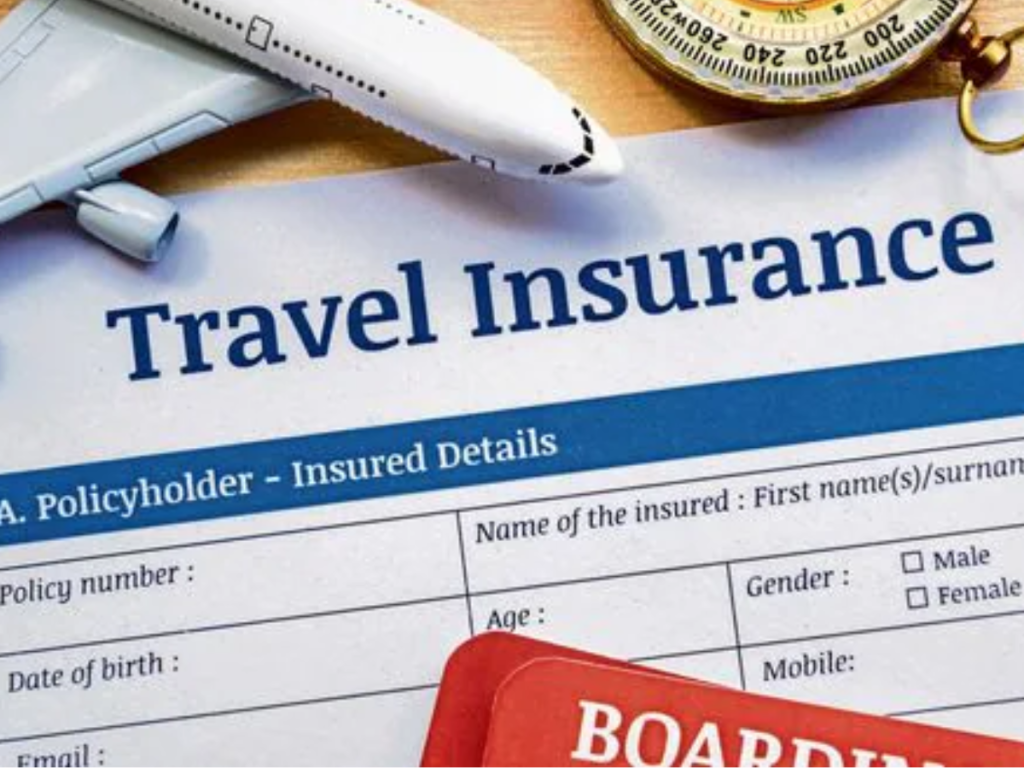Introduction
Travel is one of life’s great joys. Whether it’s a spontaneous weekend getaway or a meticulously planned international adventure, exploring new places has a magical way of enriching our lives. But no matter how well you plan, travel has its unpredictable side. Flights get canceled. Luggage goes missing. Illness or injury can strike when you least expect it. That’s where travel insurance steps in—not just as a safety net but as a game-changer that transforms potential chaos into comfort, confidence, and control.
At its core, travel insurance is about more than just reimbursement. It’s about peace of mind. It’s about knowing that no matter what unexpected situation arises, you won’t be left stranded—emotionally, logistically, or financially. In this article, we’ll explore how travel insurance provides critical support in real-world situations like missed connections, emergency medical care abroad, and lost luggage. We’ll also discuss how it has evolved over the years to meet the needs of modern travelers and why it’s a must-have, not a maybe, for your next trip.
The Harsh Reality of Missed Connections
Imagine this scenario: you’re on a multi-leg journey, flying from Mumbai to Paris with a layover in Doha. Your first flight gets delayed due to weather, and you arrive in Doha only to see your connecting flight to Paris taking off without you. With no immediate alternative, you’re stuck in a foreign airport, scrambling to rebook a ticket that now costs three times more than your original fare. Meanwhile, your hotel reservation in Paris is non-refundable, and the tour you booked for tomorrow morning is lost money too.
Missed connections are more common than many realize, especially with today’s tightly scheduled flights and unpredictable global events. Whether due to weather delays, airline staffing shortages, or mechanical issues, travelers find themselves stranded every day.
This is where travel insurance can make a crucial difference. A comprehensive plan typically includes trip interruption or delay coverage, which reimburses you for additional transportation costs, overnight accommodations, meals, and any prepaid, non-refundable expenses. More importantly, it often comes with 24/7 assistance services that help you rebook flights and navigate the chaos with support instead of stress.
The Hidden Dangers of Traveling Without Medical Coverage
Medical emergencies are perhaps the most important reason to consider travel insurance. Most people don’t realize that their domestic health insurance typically doesn’t cover them abroad. That means if you break a leg skiing in Switzerland or contract a serious illness in Southeast Asia, you could be on the hook for thousands—or even tens of thousands—of dollars in medical bills.
Take the case of an American tourist in Thailand who suffered appendicitis. Without travel insurance, his emergency surgery, hospital stay, and medical evacuation back to the United States totaled over $50,000. With a solid travel insurance plan, all these costs would have been covered.
Medical evacuation coverage is another essential component. In serious cases, travelers may need to be transported to a hospital in a different city or even back to their home country. These airlifts are expensive and complicated to coordinate. Insurance companies that offer this benefit not only pay the bill but handle the logistics, ensuring you get the care you need as quickly as possible.
Lost Luggage, Lost Time, and the Lost Experience
Few things are more frustrating than arriving at your destination only to discover your luggage didn’t make the trip. Now you’re stuck without clothes, toiletries, or other essentials—an especially annoying issue if you’ve just landed in a remote area where replacements aren’t easily available.
Travel insurance often includes baggage delay or loss coverage, which compensates you for the costs of replacing necessary items. This might seem like a minor issue compared to a medical emergency, but it can significantly impact your comfort and enjoyment. Moreover, insurance can also provide compensation for damaged items or help you recover stolen belongings through emergency assistance and local coordination.
Without insurance, you may find yourself at the mercy of slow airline claims processes or having to spend out-of-pocket for essentials that should have been avoidable costs. With insurance, you get timely support, faster reimbursement, and a buffer that lets you get back to enjoying your trip.
Beyond the Basics: What Travel Insurance Covers Today
The best travel insurance plans today are surprisingly comprehensive. They go beyond flight delays and medical care to offer a wide range of protections, including:
- Trip Cancellation: Reimbursement if you need to cancel your trip due to a covered reason like illness, injury, or a family emergency.
- Trip Interruption: Coverage if your trip is cut short, covering the cost to return home and unused prepaid expenses.
- Emergency Assistance Services: 24/7 access to help lines that assist with medical referrals, legal help, lost passport assistance, and more.
- Travel Delay: Compensation for meals, lodging, and transportation if you’re delayed for several hours.
- Rental Car Damage: Coverage if a rented vehicle is damaged or stolen.
- Accidental Death and Dismemberment: Financial support for your family in the unfortunate event of a fatal accident.
Some policies even cover specific issues like adventure sports injuries, political evacuation, or natural disaster disruption. Others allow for “Cancel for Any Reason” upgrades, which give you maximum flexibility if your plans change for non-covered reasons.
How the Pandemic Changed Travel Insurance
The COVID-19 pandemic reshaped how travelers think about insurance. At the beginning of the pandemic, many were caught off guard when their policies didn’t cover cancellations due to outbreaks. Since then, most insurers have updated their offerings to include coverage for pandemics, quarantines, and related travel disruptions.
Today’s travelers are more aware of the risks, and insurers have responded by offering more transparent, flexible, and customizable coverage. Some plans now cover COVID-related medical expenses, extended stays due to mandatory quarantines, and even trip cancellation due to positive tests or exposure.
This shift underscores an important point: insurance isn’t just for worst-case scenarios anymore—it’s a smart, proactive step to safeguard your investment in your travel experience.
Real-Life Stories: How Insurance Saved the Day
Let’s look at a few real-life examples of how travel insurance turned chaos into comfort:
- Family Emergency in Japan: A traveler on a business trip in Tokyo received news that a close family member had fallen critically ill back home. With trip interruption coverage, he was able to immediately book an early flight home and recover all his unused hotel nights and flights.
- Lost Passport in Spain: A backpacker had her bag stolen in Barcelona, losing her passport, phone, and credit cards. Her insurance policy included emergency assistance that helped her contact the embassy, secure temporary documentation, and even provided a cash advance to help her continue her trip.
- Injury in the Alps: A skier broke her ankle while vacationing in the French Alps. The insurance company not only covered her surgery and hospital stay but also arranged and paid for a medical evacuation back to the U.S., saving her over $40,000 in costs.
These stories highlight the emotional relief travel insurance provides. Knowing someone has your back when you’re in unfamiliar territory makes all the difference.
Who Needs Travel Insurance?
The short answer: almost everyone.
- Solo Travelers need the backup support insurance offers in the event of illness or an emergency.
- Families face greater financial risk and benefit from protections for children and elderly relatives.
- Business Travelers can’t afford disruptions and benefit from fast assistance and reimbursement.
- Adventure Seekers participating in high-risk activities should have coverage that extends to sports injuries.
- Cruise Travelers often face strict cancellation policies and medical limitations at sea, making insurance critical.
Even domestic travelers can benefit from insurance, especially for trip cancellations, road trips involving rental vehicles, or coverage for expensive non-refundable bookings.
How to Choose the Right Travel Insurance Plan
When selecting a travel insurance plan, consider the following:
- Trip Cost and Duration: Ensure coverage matches your full travel investment, including tours, hotels, flights, and deposits.
- Destination: Make sure your destination is covered, and check for any travel advisories or exclusions.
- Personal Health: If you have pre-existing conditions, find a plan that includes a waiver or allows coverage.
- Activities Planned: Be aware of exclusions for high-risk activities and add-on adventure coverage if needed.
- Flexibility: Consider options like “Cancel for Any Reason” if you need more control over your trip plans.
Comparison tools and review sites make it easy to evaluate top providers. Reputable insurers include Allianz, World Nomads, AXA Assistance, and Travelex, among others.
The Real Value of Travel Insurance
At first glance, travel insurance may seem like just another expense tacked onto your itinerary. But when you compare its relatively low cost to the potential financial and emotional burden of an unexpected event, its value becomes crystal clear.
Think of it as buying peace of mind. A $50–$100 policy could end up saving you thousands—or even your life. More than that, it gives you the confidence to explore the world freely, knowing that if something goes wrong, you won’t be facing it alone.
Final Thoughts
Travel opens our eyes, enriches our souls, and brings us closer to the world—and to ourselves. But even the most magical trips can go sideways. Missed connections, lost luggage, or a sudden illness can transform excitement into anxiety in seconds.
Travel insurance is the bridge between the unpredictable and the unforgettable. It turns chaos into comfort, transforming problems into manageable bumps in the road. It’s the difference between a ruined trip and a recovered one, between fear and freedom.

